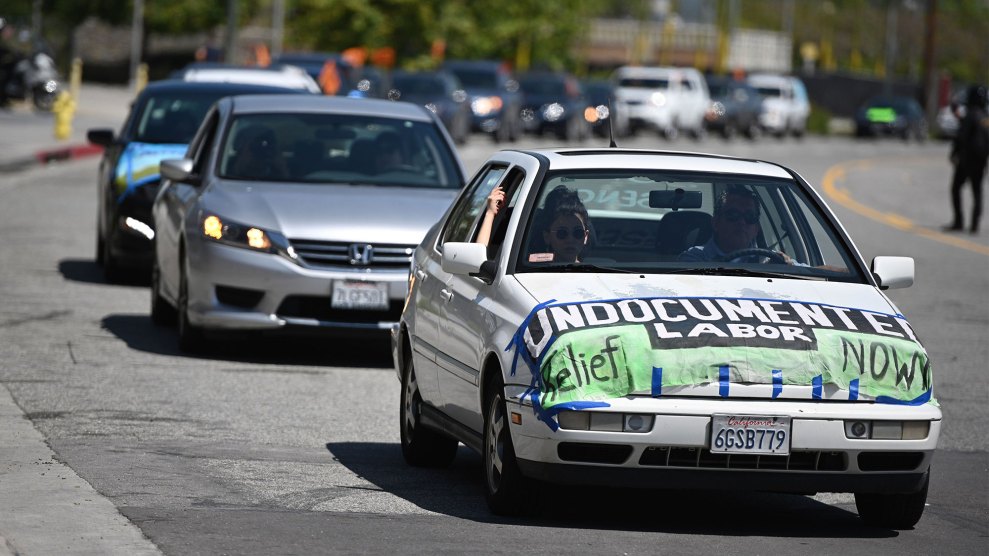
Day laborers and their supporters participate in a "Caravan for Essential and Excluded Workers'' in April in Los Angeles. They were calling on California Gov. Gavin Newsom to ensure that COVID-related emergency financial aid from the federal CARES Act reached day laborers, undocumented workers, and their families.ROBYN BECK/AFP via Getty Images
A group of 100 members of Congress just sent a letter to House Speaker Nancy Pelosi requesting that the next COVID-19 recovery package include a pathway to citizenship for immigrant essential workers. Those workers “have been, and will continue to be key to the health and safety of all Americans during the pandemic, and will be critical for the economic recovery of the country,” they wrote in the letter.
Immigrant essential workers have risked their lives so all Americans could overcome this pandemic — and they should be included in our nation’s economic recovery.
I’m working on citizenship legislation and optimistic this @HispanicCaucus priority will be part of COVID relief. https://t.co/vsJmYCcLuG
— Joaquin Castro (@JoaquinCastrotx) January 30, 2021
The Congressional Hispanic Caucus is leading the push to give legal status to an estimated 5 million essential workers who are undocumented or who have only temporary protections from deportation. An estimated 200,000 DACA recipients—immigrants without permanent legal status who were brought to the United States as children—and about 130,000 Temporary Protected Status holders have been working essential jobs during the pandemic.
“The inclusion of these protections is not just a necessity for economic recovery, it is an issue of economic and racial justice for communities that have been the most vulnerable to the crisis and left out in previous relief packages,” the letter says.
Undocumented people have been severely affected by the economic recession. They have had no government assistance throughout the pandemic. Many have either lost a job with no safety net to catch them or continued to risk their lives trying to make a living, all without access to health care or sick pay.
President Joe Biden and Democrats in Congress are pushing for a $1.9 trillion coronavirus relief package, and immigrant rights groups have been putting pressure on Congress to provide assistance and protection for immigrant workers and their families. Hispanic Caucus Chair Joaquin Castro (D-Texas) has been leading the effort.
Essential workers, including undocumented immigrants, have risked their lives to keep America fed, healthy, and moving forward.
They don't run America, but they make America run.
I'm working on a bill to grant them a path to citizenship as part of our COVID recovery. #WeAreHome pic.twitter.com/jOFxAkKXdY
— Joaquin Castro (@JoaquinCastrotx) January 27, 2021

















